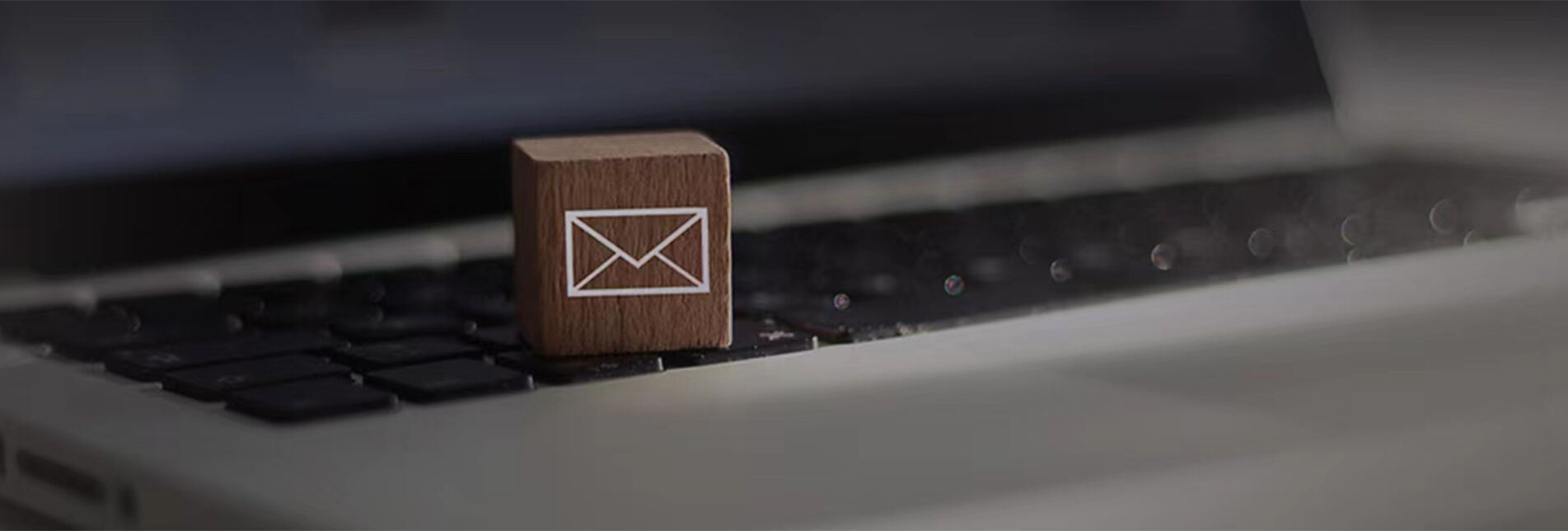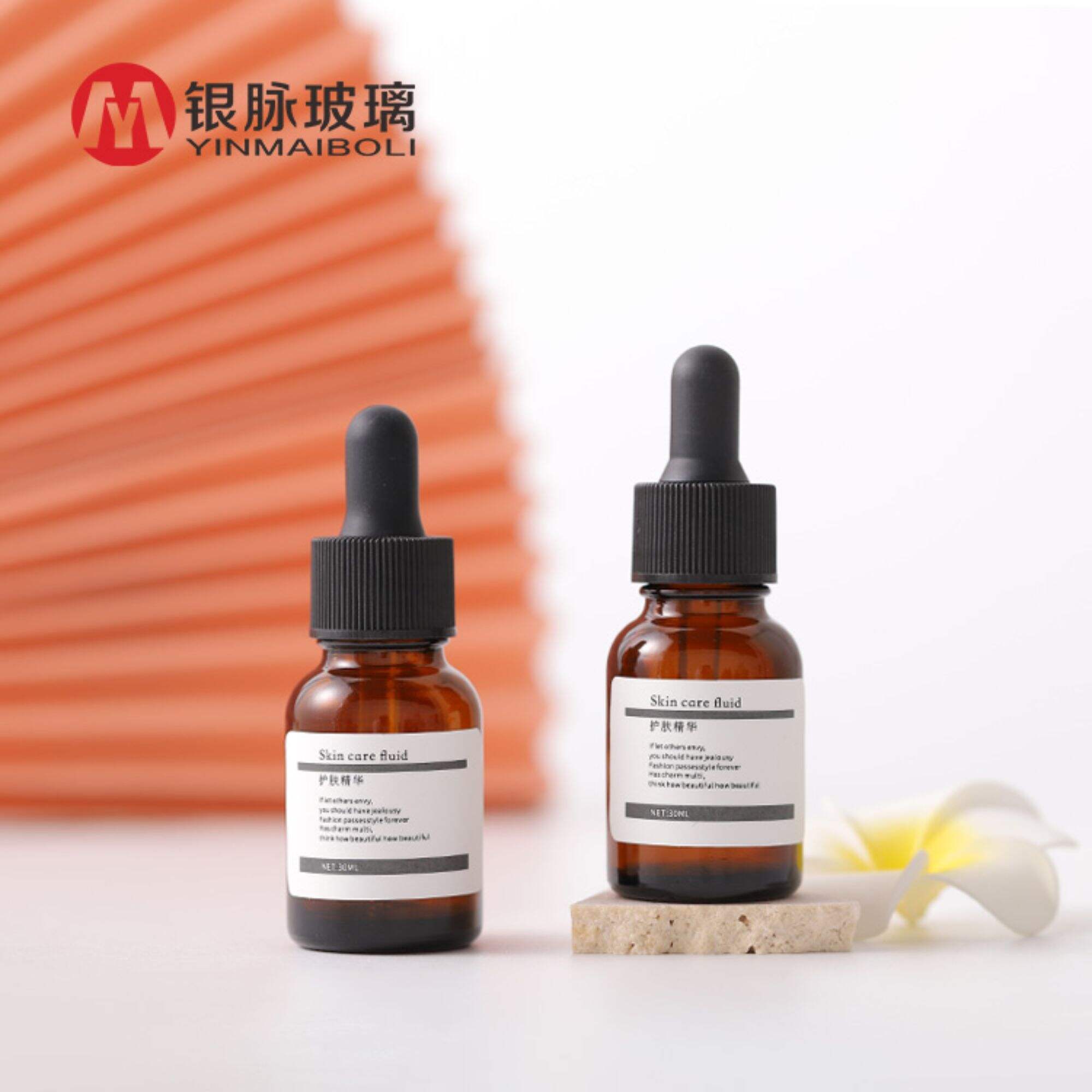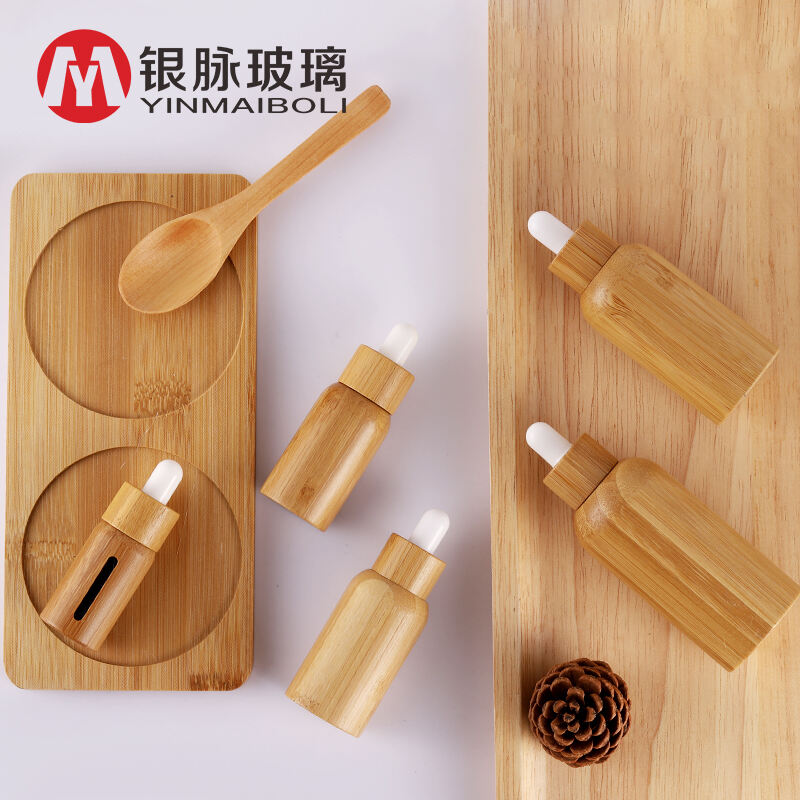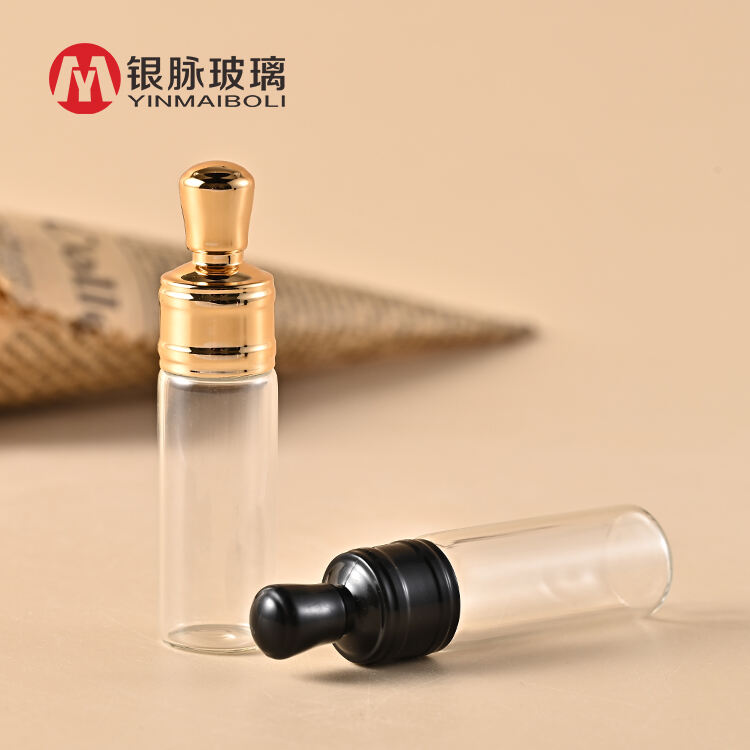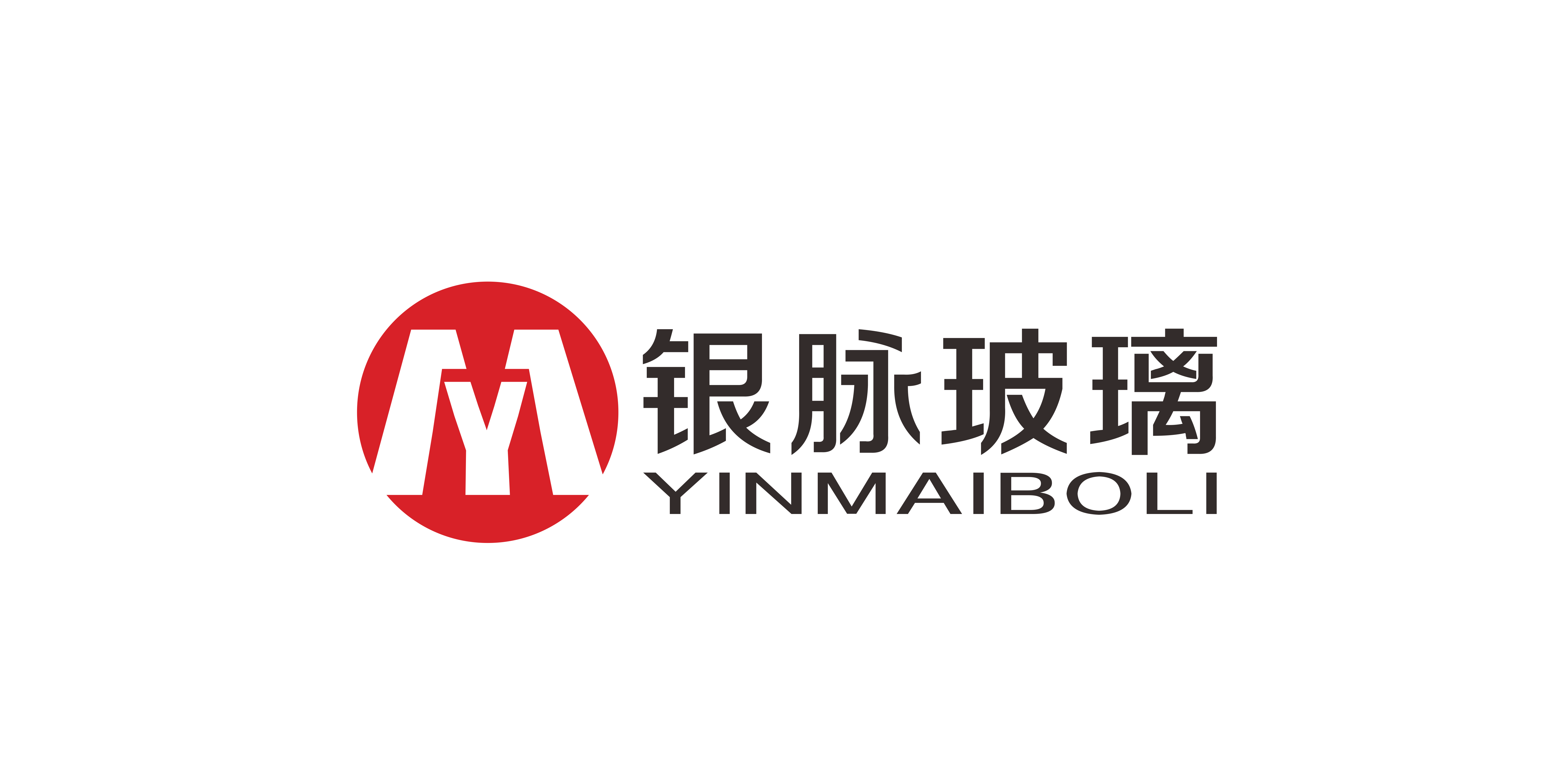Essential Oil Bottle Materials: Glass vs. Plastic for Longevity
Glass vs. Plastic: Material Impact on Essential Oil Preservation
Chemical Stability in Essential Oil Storage
Glass bottles have a real advantage when it comes to storing essential oils because they don't react chemically with what's inside. Amber or cobalt glass works best since these colors block out light that can degrade sensitive compounds over time. When kept in glass, the oils stay pure without any unwanted changes happening between container and contents. Plastic is different though. Many plastics actually leach chemicals into whatever they hold, and this can mess with both smell and effectiveness, particularly noticeable in oils rich in terpenes like lavender or citrus blends. Research indicates oils last significantly longer in proper glass storage compared to plastic alternatives. That's why most serious aromatherapists stick with glass jars for long term oil preservation despite the extra cost and weight factor.
UV Protection and Light Sensitivity
For protecting against UV damage, glass is definitely the better choice, especially those deep amber or cobalt blue varieties that really do a good job at stopping those harmful rays. The problem with letting sunlight hit essential oils is that they start breaking down over time, which means both their quality and effectiveness drop off pretty quickly. Clear plastic just doesn't cut it when it comes to blocking out UV light, and many people find their oils turn rancid much faster in these containers. Most experienced aromatherapists and product formulators will tell anyone who asks that proper storage matters a lot. That's why so many high quality essential oil brands still go with dark glass bottles despite the higher costs, because they know how important light protection actually is for maintaining what makes these oils special.
Permeability Risks in Different Materials
Glass bottles don't let air or moisture get through, which helps keep oils fresh and maintains their quality. Plastic containers tell a different story though. Over time they start letting things like oxygen seep in, and this can really mess with how strong and aromatic the oils remain. Studies show oils kept in glass stay pretty much the same for months or even years, while those sitting in plastic tend to break down faster because plastic isn't as good at keeping stuff out. For anyone serious about preserving essential oils properly, switching to glass storage makes all the difference in avoiding these kinds of problems down the road.
Long-Term Durability Comparison
Glass jars tend to last forever really, they don't break down much from things like weather changes or contact with oils, so they work great for keeping stuff stored for ages. Plastic containers tell a different story though. When left in warm places or under direct sun, plastic tends to break down over time. This breakdown can let chemicals escape into whatever's inside and sometimes even causes the bottle to crack or melt. People who have used glass containers for years will tell anyone that spending a bit more upfront on glass pays off in the long run since these containers just keep working without needing replacement every few months. Glass simply provides something more dependable and environmentally friendly when it comes to storing those precious essential oils at home.
Why Glass Bottles Excel in Preserving Oil Integrity
Non-Reactive Properties of Glass
Glass works better than other materials when it comes to keeping essential oils intact since it doesn't react with what's inside. Some plastics actually release chemicals into the oils over time, but glass just sits there without messing around with whatever we store in it, which keeps things pure. For those using therapeutic oils where effectiveness matters a lot, this non reacting quality makes all the difference. The oils need to stay exactly how nature made them to work properly. That's why most aromatherapy experts suggest going with glass bottles instead of plastic ones. Plus, glass containers often hit the same standards as those used in pharmacies, so people tend to trust them more when storing valuable essential oils. These glass jars help maintain the oils' potency and natural characteristics much longer than other options available on the market today.
Amber Glass for Enhanced UV Resistance
Amber glass bottles actually block out most UV light, which is really important if we want our essential oils to stay good over time. The problem comes from those harmful UV rays breaking down the terpenes in the oils, basically making them lose what makes them work so well. So next time someone shops for essential oils, they might want to check what kind of bottle it's in. Amber glass definitely helps these oils last longer on the shelf while keeping that nice smell and all those health benefits intact. Studies show that oils kept in amber glass tend to keep their fragrance and potency for weeks or even months longer compared to regular clear or green glass containers. That's why many serious users stick with amber bottles whenever possible.
Sustainability and Reusability Benefits
Glass offers real sustainability benefits when used for essential oil containers. Unlike other materials, glass can be recycled again and again without any loss of quality, which makes it pretty environmentally friendly stuff. When people choose glass bottles instead of alternatives, they help cut down on what ends up in landfills while supporting better environmental outcomes overall. Glass containers also tend to get reused more often than their plastic counterparts, something that really appeals to folks who care deeply about living sustainably. Making these kinds of purchases shows someone cares about how their buying habits affect the world around them. The numbers back this up too research indicates that moving away from plastic towards glass products reduces pollution levels substantially. For anyone wanting to do their part for the planet, glass remains a solid pick over traditional plastics.
Limitations of Plastic Essential Oil Containers
Leaching Risks with Volatile Compounds
Using plastic containers for storing essential oils comes with some serious downsides, mainly because of chemical leaching problems. When certain types of plastic get warm, they tend to release unwanted chemicals into whatever's inside them. This happens especially with cheaper plastics like polyethylene terephthalate (PET) or polycarbonate. The problem gets worse with highly volatile oils such as citrus blends since these actually break down plastic faster than other oils do. People who have used these oils often report strange tastes or smells after storage, which makes sense given what experts say about how much these leachables impact the final product. For anyone serious about aromatherapy, glass bottles remain the safest bet despite being heavier and more fragile than plastic alternatives.
Material Degradation Over Time
Another issue with plastic containers is what happens to them over time. The materials tend to break down gradually, which shows up as color changes and weird smells in the oil. This basically ruins both the quality and how long the oil stays good on the shelf. Light exposure and heat really speed things up when storing oils in plastic. Glass bottles handle environmental stress much better though. Studies show that essential oils react with plastic surfaces, causing them to spoil faster compared to storage in glass. For anyone wanting their oils to last longer and stay true to their original scent, glass remains the best bet for keeping those precious drops intact.
Environmental Impact Considerations
We really can't ignore what plastic does to our environment. Making plastic products creates massive amounts of carbon emissions throughout the entire manufacturing chain, from extracting raw materials to transportation and processing. And then there's all that plastic waste piling up everywhere we look these days. Landfills are overflowing with discarded packaging while ocean gyres collect millions of tons of floating debris. The situation has gotten so bad that cleanup efforts cost billions annually just to manage the damage already done. Because of these problems, many industries are starting to switch back to older materials like glass containers instead. Research shows switching from plastic bottles to glass alternatives reduces long term waste accumulation by around 70% according to recent lifecycle analyses. Glass isn't just functional for storing liquids either it actually breaks down safely when disposed properly after hundreds of years rather than lingering forever like most plastics do. So when companies talk about sustainability now, they need to consider not just what works best technically but also what makes sense environmentally over time.
Top Glass Essential Oil Bottles for Maximum Shelf Life
Wholesale Amber Glass Dropper Bottles (10ml-30ml)
People love amber glass dropper bottles because they keep essential oils fresh longer while still letting users get just the right amount when needed. Available in sizes from small 10ml containers all the way up to 30ml options, these bottles work great whether someone needs a few drops at home or wants to stock up for retail sales. Buying in bulk makes sense too since it cuts down on what people spend overall and means fewer packages ending up in landfills. Many eco-conscious folks appreciate this aspect, especially as more companies try to cut back on plastic waste across their operations.
Frosted Glass Bottles with Bamboo Dropper Lids
Glass bottles with a frosted finish serve a practical purpose while looking really good too. They protect essential oils from harmful UV rays, which matters a lot for preserving quality over time. Eco minded folks love them because they combine style with green credentials. The lid made from bamboo stands out as something special since it breaks down naturally when disposed of, adding another layer of environmental friendliness to the whole package. Plus, frosted glass doesn't show fingerprints as easily as clear glass does, so these containers look cleaner and more sophisticated on store shelves or sitting around the house without needing constant wiping.
Tawny Facial Essence Bamboo-Capped Containers
Tawny facial essence containers manage to mix luxury with practicality pretty well, especially for those skincare products that need some serious protection from light and air exposure. What really stands out is the bamboo cap design. It works great when someone needs to open and close the container multiple times a day, plus it looks fantastic sitting next to other high end beauty items on bathroom counters or dressing tables. Many boutique skincare brands have started using these containers because they just scream premium quality at first glance. The earthy texture of the bamboo contrasts nicely against the deep amber glass, creating that perfect balance between looking expensive and feeling environmentally conscious too.
Mini Travel-Friendly 5ml Glass Vials
Travelers who need to carry around their favorite essential oils will find mini glass vials incredibly handy. These little containers work great when moving from place to place because they keep all the benefits of regular glass bottles but take up way less space in luggage. The fact that they fit so easily into pockets or purses makes them ideal for people who use aromatherapy while traveling just to stay balanced and relaxed during long trips or busy days at conferences.
Amber Glass Bulk Bottles with Secure Caps
Amber glass bulk bottles work great when someone needs to store big amounts of essential oils properly. The color helps block out light which can degrade the oils over time. Most come with tight fitting lids that stop leaks and keep dust and other stuff out. This makes these containers perfect for companies selling oils wholesale or anyone else needing dependable storage until they get ready to ship products to customers. Buying in bulk usually cuts down on expenses quite a bit, so many small businesses find this option really helpful for their bottom line. Some shops report saving hundreds each month just by switching to these larger containers instead of buying smaller bottles repeatedly.
Choosing the Right Material for Your Needs
Frequency of Use and Storage Conditions
When picking materials for essential oil bottles, how often they'll be used and where they're stored really matters. People who reach for their oils multiple times a day tend to find glass containers work best because they last longer and keep the oils tasting good even after months sitting on shelves. Glass just happens to block out both light and heat fluctuations that can ruin delicate essential oils over time. While the upfront cost might seem higher than plastic alternatives, most folks notice glass actually saves money in the long run since these bottles don't need replacing as frequently. Plus, there's something satisfying about watching those vibrant colors stay true through countless refills without any degradation in quality.
Balancing Cost vs. Preservation Quality
At first glance, plastic containers might seem like the budget choice, but glass bottles actually provide better value over time when it comes to keeping things fresh. The essential oils kept in glass tend to stay strong and smell good for much longer than if they were in plastic storage. For premium quality oils, this matters a lot since glass really does protect them better against going bad. Sure, buying glass costs more at the start, but what people often forget is that these containers help maintain oil quality far longer. That means fewer wasted products down the road as the oils don't lose their power or fragrance so quickly, making glass a smarter purchase in the long term despite higher initial expenses.
Eco-Conscious Packaging Priorities
People who care about the environment generally see glass containers as the better option. Glass is completely recyclable and actually leaves a much smaller carbon footprint compared to plastic waste. A lot of companies are starting to notice this trend and switching over to greener packaging options. When businesses go for glass, they boost their green image while often seeing happier customers too. Market research indicates folks typically support brands that share similar environmental concerns, so moving toward glass isn't just good for the planet but makes smart financial sense as well. The switch helps build trust with environmentally aware shoppers and opens up new markets for forward thinking companies.

